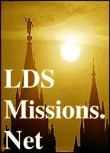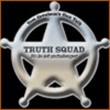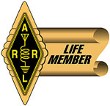| The ninth Article of Faith of the Church of Jesus Christ of Latter-day Saints (Mormons or LDS) is: "We believe all that God has revealed, all that he does now reveal, and we believe that he will yet reveal many great and important things pertaining to the Kingdom of God."
Revelation can be defined as communication from God to us. It can also be defined as the unveiling of that which is hidden. Sometimes the things which are hidden are simply forgotten because of the veil which prevents us from remembering the preexistence. Revelation sometimes can involve a partial lifting of that veil.
Revelation always has been the foundation of God's true Church. Only through revelation can God make known His divine truth. Through revelation He runs his Church by communication to his prophets.
The prophet Amos said: "Surely the Lord God will do nothing but he revealeth his secret unto his servants the prophets." (Amos 3:7)
God has worked his will through revelation over many dispensations, each headed by prophets. Some of these instructions have been recorded. But much has been forgotten, misinterpreted, or even distorted. Therefore, every generation of man has had a need for revelation to reveal the Plan of Salvation and to maintain the Keys of the Priesthood on the earth.
Ancient revelation is part of the foundation of the LDS religion
The LDS church accepts the Bible and the Book of Mormon as our two primary ancient scriptures. We value these ancient scriptures for many reasons:
For the instructional and spiritual value of the events the scriptures describe.
Because they describe the commandments, ordinances and covenants necessary for our growth and salvation.
Because they describe some of the basic operations of God's church.
And because they contain prophecies giving warnings of significant events such as famine, apostasy, restoration, and the first and second comings of Christ.
Devout Christians of most faiths readily accept the truth that revelation was poured out upon the faithful in past ages, from Adam to the Apostles. However, they believe that the Bible is a complete and correct record of those revelations and that nothing more is forthcoming from Heaven. They believe the heavens are sealed, not because of man's apostasy, but because it has been God's will to stay silent. Apparently, the unique modern-day problems we face today don't require special divine guidance. Those who deny modern-day prophecy must presume either that God is powerless to talk to us, doesn't care about us, or that the Bible is complete and accurate for our needs.
Why do we need modern revelation?
In the LDS church, we do not consider ancient scripture to be the sole authority of religious instruction and personal guidance. Even our primary ancient scriptures, the Bible and the Book of Mormon, together don't contain everything we need to run the Lord's church or our spiritual lives.
Ancient scriptures must be supplemented by modern-day prophets who receive divine guidance concerning our spiritual and temporal welfare. We need real-time guidance to ensure the Church and our lives are in accordance with the will of God.
Through modern-day revelation, we have learned some important truths unique in the Christian world (Marvelous Work and a Wonder, p 429). For example,
We know the true personality and physical character of God.
We know man's true relationship to God.
We have a basic understanding of The Plan of Salvation: Where we came from, that we lived before we were born; why we are here in this mortal existence; and clues as to what our reward will be following this life.
We have been taught the correct application of the Law of Tithing.
The Lord has given us The Word of Wisdom to help us live healthier lives.
God has given us new scripture, such as the Doctrine and Covenants, and has provided for the translation of ancient scripture, the Book of Mormon and Pearl of Great Price.
The Priesthood, which is the authority to act in God's name and to perform His saving ordinances, has been restored to the earth.
Ordinances that were forgotten due to the Apostasy such as eternal marriage and ordinances by proxy for the dead have been restored.
We have learned that baptism of little children is unnecessary and against the will of the Lord.
We are constantly receiving instructions concerning the proper organization and operation of the Church and the Priesthood.
How does the Lord use his church to pass revelation to us?
Whenever the true church of the Lord has existed, it has been founded upon revelation. The Church is truly the Lord's church only as long as revelation is received to direct its affairs. Official revelation only comes through established channels. Only the President, who holds and exercises the keys of the Priesthood can announce revelation for the Church. (D & C 28:2-7; 38:18; 43:2-7)
In February of 1831, a woman named Hubble came to the Prophet Joseph and made the claim that she had received divine revelations. She was one claimant of many at this time. Elder George A. Smith related that, "There was a prevalent spirit all through the early history of this Church, which prompted the Elders to suppose that they knew more than the Prophet. Elders would tell you that the Prophet was going wrong." There was a man named Hawley who said the Lord had commanded him to go to Kirtland and tell the Prophet that he had lost his office, because he had caused John Noah, a pretended prophet, to be cut off from the Church. Many were bewildered by the different voices and consequent confusion.
The Prophet Joseph therefore found it necessary to ask the Lord for light and guidance with regard to this matter, and the Revelation in D & C 42 came in answer to prayer. In this section, the Lord declared that there is only one appointed at a time to receive divine revelations and commandments for the Church, not through any of the prophet's associates, much less through any of the numerous pretenders that appeared in Kirtland at this time.
In the Doctrine & Covenants we read "Behold, mine house is a house of order, saith the Lord God, and not a house of confusion." (D & C 132:8)
How does one become a prophet? One does not seek to be a prophet at any level in the church as one chooses to be a baker, doctor, accountant, or school teacher. "We believe that a man must be called of God, by prophecy, and by the laying on of hands by those who are in authority...." (Articles of Faith, #5) Anything different makes the church "a house of confusion".
There are many ways modern revelation is passed from the Lord though his prophets to us:
Letters from the First Presidency through the church hierarchy to our Bishop and then us.
Instruction given in conferences and church meetings.
Church magazines.
Books written by the prophets.
Counsel given one-on-one by priesthood leaders.
And by Priesthood blessings.
We view all these forms of modern revelation as in complete harmony with the ancient scriptures. They all come from the same source, after all. The ancient scriptures and the words of modern prophets enhance and clarify each other. Modern prophets help us to correctly translate, comprehend, and apply ancient scripture.
We believe in, and sustain, prophets at many levels in the Church. Each level of priesthood leadership from the President down through stake presidents, bishops, quorum presidents, and home teachers are called to be prophets within their respective callings. Teachers and heads of LDS families are entitled to inspiration to deal with the challenges of those callings. Every person properly appointed and sustained to an official capacity in the church is entitled to spiritual guidance to guide that organization over which he presides.
Each prophet at each level of the Church is entitled and should be receptive to revelation pertaining to his calling. A bishop, for example, should receive revelation pertaining to the operation and welfare of his ward. He receives divine guidance in calling members to responsibilities within his ward. But, since the Lord's house is a house of order, the Lord would not reveal to a bishop how to run another ward or a stake. Likewise, the Lord will not reveal things to a Bishop which contradict the established doctrines and policies of the Church. Joseph Smith said, "Revelations of the mind and will of God to the Church are to come through the Presidency. This is the order of heaven, and the power and privilege of this Priesthood. It is also the privilege of any officer in this Church to obtain revelations, so far as relates to his particular calling and duty in the Church. (Teachings, p111)
As members, we must be very careful about second-guessing the decisions of the Bishop and other Priesthood leaders or assume that their inspiration is in error. Unless we recognize our priesthood authorities as inspired, and respect the stewardship they have over us, receiving their council is always hard. Anyone who has served with a Bishop or Stake President as a counselor or as a clerk knows that wards and stakes truly are led through revelation. To watch a Bishop arrive at decisions on a day-to-day basis is truly inspiring.
By what means does God reveal his word?
Direct revelation to church officers is what makes the Church truly the Church of God. But the Lord can also communicate directly with individuals to help us to run our lives in true happiness and peace. The Lord gives his mind and will to receptive mortals in whatever ways seem appropriate. Revelation ranges from grand manifestations like the time when the newly resurrected Christ appeared to the Book of Mormon people to providing simple insights while studying the scriptures.
Some examples of the more majestic modes of revelation are:
God occasionally appears personally to certain spiritually receptive persons as in the cases of Moses, Stephen, and Joseph Smith.
The Lord sometimes speaks audibly by his own voice to those whose ears are attuned such as when many heard the voice of the Father at Christ's baptism.
Sometimes angels sent from His presence. For example, Moroni and others appeared to Joseph Smith as a part of the restoration of the Church and Priesthood. An angel appeared to Mary to announce the birth of Jesus.
Prophets sometimes see visions such as Brigham Young's preview of the Salt Lake valley. Visions are given when the recipient is awake.
Sometimes God communicates through dreams while the recipient is outside normal consciousness. They leave such an indelible impression that the person remembers them clearly upon waking. Dreams were given to Pharaoh and King Nebuchadnezzer and were interpreted by prophets.
Sometimes the Lord has used certain miracles and physical signs such as the operation of Liahona, Urim and Thummim and the divine manifestations that led to the conversions of Apostle Paul and Alma the Younger. Even Laman and Lemuel had similar manifestations, but were not converted.
Most of us never have these kinds of revelations, and that's okay. Most revelation comes through more subtle means. These quiet, subtle forms of revelation are the most common ways in which God runs his Church.
The Lord uses Scriptures and church publications to broadcast his guidance to the world.
Temple worship is an excellent opportunity to gain a better understanding of the Gospel and the commandments.
Personal prayer and Scripture study are special times when we can attune ourselves to God. We can seek the guidance we need to meet our own individual challenges and seek the blessings we need.
One might hear a "still small voice" or feel promptings of the spirit. God can communicate with us through promptings of the Spirit that urge us to make decisions or to take some action such as make a phone call to someone in need. We may not recognize these promptings as revelation because they are often so subtle. These promptings and inspirations are the most common form of revelation.
Through priesthood leaders, the Lord often gives us individualized instruction and counsel, even warnings and reprimands.
Priesthood blessings often contain personal instructions from God.
What is personal revelation?
Personal revelation is a natural inheritance of all the faithful. For most of us, personal revelation comes through the more subtle forms of revelation and inspiration. The gift of the Holy Ghost is the right to revelation at any time when worthy, desirous, and receptive.
But, the receipt of revelation does not assure salvation for the favored recipients. The history of the Church, both modern and ancient, is full of stories of how some of the most gifted and trusted men fell by the wayside because they were proud, set aside the counsel of the Lord and his servants, and followed their own wills. Salvation is gained not by receiving revelations and other spiritual manifestations, but by enduring in faithfulness and obedience to the end.
In Section 3 of the Doctrine and Covenants we read, "Although a man may have many revelations, and have power to do many mighty works, yet if he boasts of his own strength, and sets at naught the counsels of God, and follows after the dictates of his own will and carnal desires, he must fall and incur the vengeance of a just God upon him." (D & C 3:4)
In order to receive personal revelation:
We must be worthy and receptive to the promptings of the Spirit.
We must prepare ourselves through prayerful study of the Scriptures and other teachings of the prophets.
Back to the Ol' Buffalo Religion Page
| 















































































